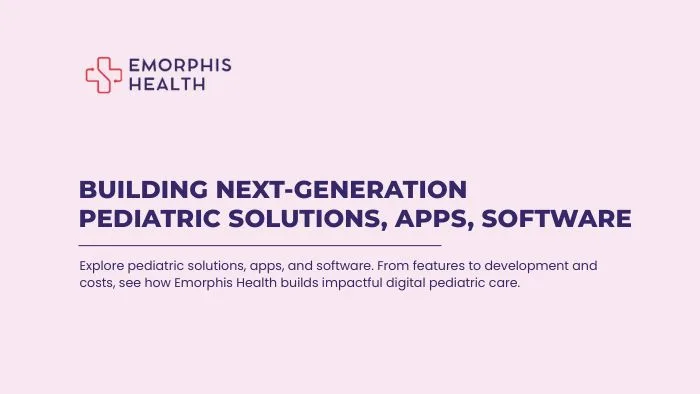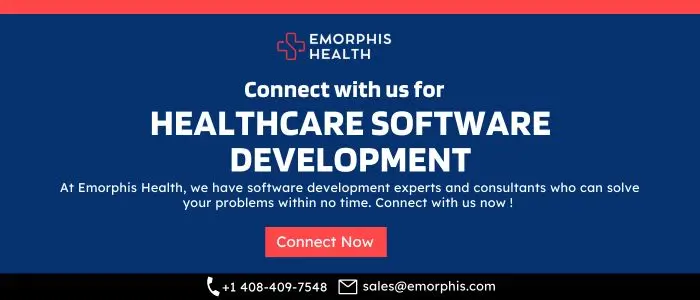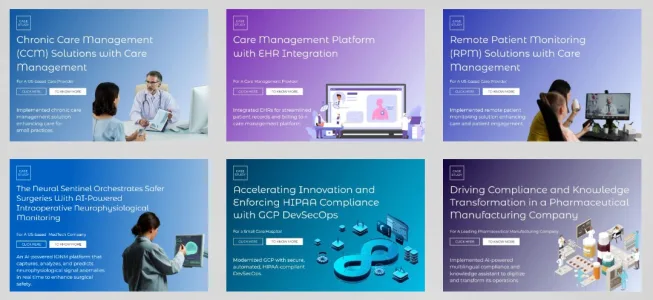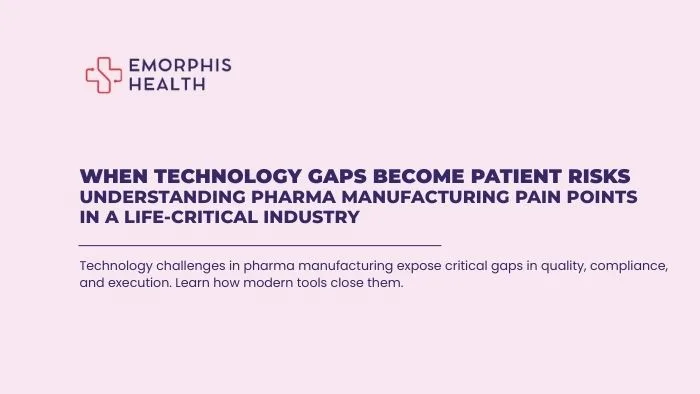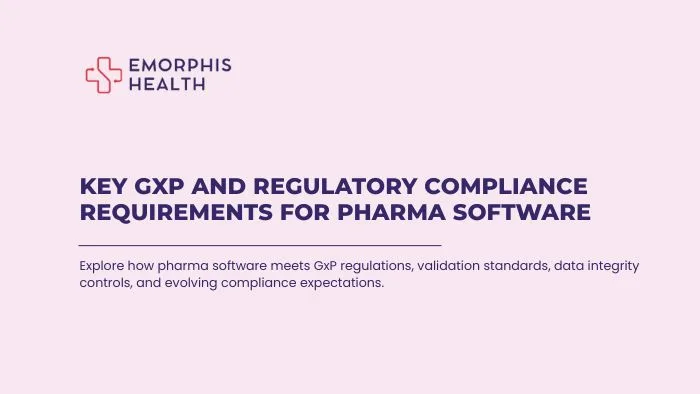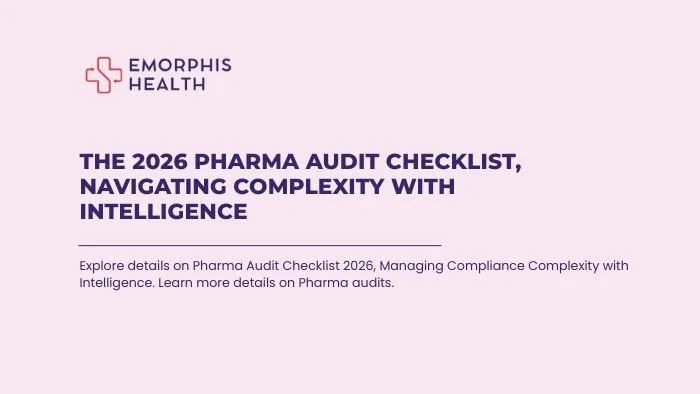Introduction to Pediatric Digital Health
See Contents
- 1 Introduction to Pediatric Digital Health
- 2 Why Pediatric Apps and Pediatric Software Matter Today
- 3 Types of Pediatric Apps, Software, and Digital Health Solutions
- 4 Core Features of Successful Pediatric Apps and Software
- 5 Building Custom Pediatric Software and Apps
- 6 Cost of Developing Pediatric Solutions
- 7 How to Choose the Right Pediatric Solution Provider
- 8 Future of Pediatric Apps, Software, and Digital Health Solutions
- 9 Conclusion
The world of healthcare is undergoing a rapid digital transformation, and pediatrics is no exception. Parents, caregivers, and healthcare providers are increasingly relying on digital platforms to manage the health of children in smarter, safer, and more efficient ways. At the center of this transformation are pediatric apps, pediatric software, and pediatric solutions that bring together technology and care to address the unique needs of children.
The field of pediatric digital health is experiencing rapid growth, driven by increasing adoption of pediatric apps, pediatric software, and innovative pediatric solutions. In 2023, digital health startups focused on pediatric care attracted $413.6 million in funding, highlighting growing investor interest. Around 64.6% of children and adolescents today demonstrate sufficient digital health literacy, reflecting rising familiarity with digital health tools.
However, global disparities remain, with roughly two-thirds of school-aged children—about 1.3 billion—lacking internet access at home, particularly in regions like Africa and Asia. Research also shows that excessive screen time can impact mental health, with risks of anxiety, depression, and ADHD increasing for children aged 6 to 17 who spend more than four hours per day on screens. Meanwhile, the global pediatric EHR market continues to expand, valued at $40.42 billion in 2024 and projected to reach $82.15 billion by 2034.
These trends demonstrate the immense potential of pediatric apps, pediatric software, and pediatric solutions to improve child healthcare outcomes worldwide.
More details
Unlike adult healthcare, pediatrics involves continuous monitoring of growth, developmental milestones, vaccination schedules, and chronic conditions that may emerge during childhood. Traditional systems often fall short in meeting these requirements, but digital health innovations are bridging the gap. Today, a wide variety of pediatric solutions are being designed to support preventive care, diagnosis, treatment, and long-term condition management for children.
One of the key drivers for this change is the growing demand for personalized, accessible, and real-time care. Parents want to track their child’s health progress with ease, while pediatricians seek reliable tools that integrate clinical data with actionable insights. This demand is fueling the rise of pediatric apps that help with symptom checking, medication reminders, virtual consultations, and more. Similarly, pediatric software is being developed to integrate with electronic health records (EHRs), streamline care coordination, and enhance communication between parents, doctors, and schools.
For healthcare providers and innovators, this shift presents a powerful opportunity. By investing in custom pediatric software and pediatric app development, organizations can deliver tailored digital health experiences that improve outcomes while ensuring compliance with strict safety and privacy standards like HIPAA and COPPA. Whether it’s building a remote monitoring tool for children with asthma or developing a gamified learning platform for behavioral therapy, pediatric solutions are shaping the future of child healthcare.
In short, the introduction of advanced pediatric apps, pediatric software, and digital pediatric solutions is not just about keeping pace with technology, it’s about reimagining how care is delivered to the youngest and most vulnerable patients.
Why Pediatric Apps and Pediatric Software Matter Today
Healthcare for children has always required a different approach compared to adult care. Children are constantly growing, developing, and facing health challenges that vary by age, environment, and lifestyle. Pediatricians, parents, and caregivers often struggle with balancing preventive care, timely interventions, and long-term condition management. This is where pediatric apps, pediatric software, and modern pediatric solutions play a vital role.
Addressing Unique Challenges in Pediatrics
Traditional healthcare systems are not always optimized for pediatric needs. Growth charts, vaccination schedules, parental consent, and developmental assessments require tools that can handle complexity and flexibility. With pediatric apps, parents can now track immunization schedules, monitor growth milestones, and even receive reminders for medical checkups. Similarly, pediatric software helps clinicians analyze trends, generate reports, and make informed decisions backed by real-time data.
Empowering Parents and Caregivers
Parents today expect convenience, accuracy, and accessibility. A pediatric solution that allows them to access health records, communicate with doctors, and manage prescriptions from a single app reduces stress while improving adherence to treatment plans. Features like symptom checkers and AI-powered health assistants make pediatric apps more than just digital records—they become proactive tools for everyday parenting.
Improving Outcomes with Technology
In pediatrics, early intervention often makes a life-long difference. Custom pediatric software development ensures that healthcare providers have the right tools to detect patterns and deliver timely care. For instance, a child with asthma can be supported with a pediatric remote monitoring app that alerts parents and doctors before symptoms escalate. Similarly, children with ADHD or autism can benefit from therapeutic pediatric apps designed to improve focus and engagement.
Integration with Healthcare Ecosystems
Another reason pediatric software is becoming essential is its ability to integrate with hospital systems, school health records, and wearable devices. By connecting multiple data points, pediatric solutions give doctors a holistic view of the child’s health. This integrated approach is critical in managing chronic conditions and ensuring continuity of care across different providers.
Building Trust through Compliance
Children’s health data is among the most sensitive information in healthcare. Regulations like HIPAA in the U.S. and COPPA for child data privacy make compliance a non-negotiable requirement. HIPAA-compliant pediatric app development and pediatric healthcare software that respects parental consent ensures trust between families and technology providers.
With these challenges, opportunities, and compliance considerations in mind, it becomes clear that pediatric healthcare requires a diverse set of digital tools. The next step is understanding the different types of pediatric apps, software, and digital health solutions that are shaping the way healthcare is delivered to children today.


Types of Pediatric Apps, Software, and Digital Health Solutions
The pediatric healthcare landscape is diverse, and a wide range of pediatric apps, pediatric software, and pediatric solutions are available to meet different needs. Each type addresses a specific aspect of child health, from preventive care to chronic condition management, behavior therapy, and school integration. Understanding these types is essential for healthcare providers, innovators, and parents seeking the right digital tools.
1. Pediatric Telehealth Apps
Pediatric telehealth apps enable virtual consultations, follow-ups, and second opinions without the need for in-person visits. They allow pediatricians to evaluate symptoms, provide guidance, and adjust treatment plans remotely. Features like video calls, chat consultations, and appointment scheduling make these pediatric solutions particularly useful for families in remote areas.
2. Pediatric Remote Monitoring Apps
Pediatric remote monitoring apps track vital signs such as heart rate, oxygen levels, glucose levels, and sleep patterns using wearable devices or IoT-enabled gadgets. Children with chronic conditions, such as asthma or diabetes, benefit from real-time alerts and continuous health monitoring. Providers can intervene proactively, reducing emergency visits.
3. Child Development Tracking Apps
These pediatric apps help parents and healthcare providers monitor growth, developmental milestones, and cognitive progress. Features include growth charts, milestone notifications, nutrition tracking, and educational guidance. Integration with pediatric software ensures that data is accurately recorded and analyzed for personalized care.
4. Pediatric Medication Adherence Apps
Medication management can be challenging for children with chronic conditions. Pediatric medication adherence apps remind parents and children to take medications on time, track dosages, and send alerts to healthcare providers when doses are missed. These pediatric solutions improve treatment compliance and overall health outcomes.
5. Condition-Specific Pediatric Apps
Targeted pediatric apps focus on managing specific conditions like asthma, diabetes, ADHD, or epilepsy. Features may include symptom tracking, alerts for potential complications, educational resources, and therapy support. Custom pediatric software development ensures that these apps meet clinical standards and provide actionable insights.
6. Pediatric Behavioral Health Apps
Behavioral and mental health are critical in pediatrics. Pediatric behavioral health apps provide therapy exercises, mindfulness tools, and gamified cognitive behavioral therapy for children with anxiety, depression, or autism spectrum disorders. They also allow clinicians to monitor progress remotely.
7. Pediatric Emergency & Triage Apps
Pediatric emergency and triage apps guide parents and caregivers in urgent situations. They provide first-level assessment, symptom triage, and advice on when to seek immediate medical attention. Integration with hospital systems ensures a smooth transition if emergency care is required.
8. Pediatric Preventive Care Apps
Preventive care is crucial for long-term health. Pediatric preventive care apps track vaccinations, routine check-ups, nutrition, and wellness activities. These pediatric solutions help parents stay proactive about their child’s health and reduce the risk of preventable illnesses.
9. Pediatric Education and Engagement Apps
Gamified pediatric apps educate children about health, nutrition, hygiene, and fitness. Engaging content ensures children participate actively in their own care while parents track progress through integrated pediatric software dashboards.
10. Pediatric Growth Chart and Nutrition Software
These specialized pediatric software solutions monitor weight, height, BMI, and nutrition intake. Parents and pediatricians can identify growth abnormalities early and create personalized dietary plans. Integration with apps enhances accessibility and usability.
11. Pediatric Clinical Trial Management Software
Pediatric clinical trial software helps researchers manage studies involving children. It tracks patient recruitment, consent, data collection, and compliance with regulatory standards. These pediatric solutions streamline trials, improving research efficiency and safety.
12. Parental Communication and Care Coordination Apps
These pediatric apps connect parents, doctors, and schools to ensure coordinated care. Messaging, appointment reminders, and progress reports keep everyone informed. Integration with pediatric software platforms enables secure data sharing and better healthcare outcomes.
13. School Health Integration Solutions
Pediatric solutions for schools link student health records with healthcare providers. Features include tracking immunizations, emergency contacts, and chronic conditions. These pediatric apps ensure that teachers and school nurses can respond appropriately to health needs.
14. Wearable-Integrated Pediatric Apps
Smart wearables such as glucose monitors, smart inhalers, and baby monitors can integrate with pediatric apps to provide real-time insights. This combination of hardware and pediatric software enables continuous monitoring and alerts for parents and healthcare providers.
15. AI-Powered Pediatric Solutions
Artificial intelligence is increasingly used in pediatric apps to predict health risks, detect anomalies, and assist in early diagnosis. AI-powered pediatric software can analyze vast amounts of health data to provide actionable insights for clinicians and parents, improving preventive care and personalized treatments.
With so many types of pediatric apps, pediatric software, and pediatric solutions available, it becomes essential to understand what makes these tools truly effective. While the variety addresses different healthcare needs, successful pediatric digital solutions share common features that enhance usability, compliance, and impact. Let’s explore the core features of successful pediatric apps and software that set the standard in child healthcare.


Core Features of Successful Pediatric Apps and Software
Creating effective pediatric apps, pediatric software, and pediatric solutions requires more than functionality; it requires thoughtful design, robust security, and seamless integration with healthcare workflows. Below are the core features that distinguish high-quality pediatric digital health tools.
a. HIPAA and COPPA Compliance
Children’s health data is extremely sensitive. Successful pediatric software and pediatric apps ensure compliance with HIPAA, COPPA, and other regional privacy regulations. This not only protects the child’s information but also builds trust with parents and healthcare providers. HIPAA-compliant pediatric app development is a critical requirement for any serious pediatric solution.
b. Family-Centric UX/UI Design
The user interface of pediatric apps must be intuitive for both children and parents. Gamification, visual cues, and age-appropriate content increase engagement. Pediatric software that emphasizes a family-centric design improves adherence to care plans, boosts interaction, and ensures children feel comfortable while using the app.
c. Integration with Healthcare Systems
Effective pediatric solutions integrate seamlessly with electronic health records (EHRs), hospital systems, and wearable devices. This integration allows clinicians to access real-time data from pediatric apps and pediatric software, making it easier to track growth, monitor chronic conditions, and coordinate care across multiple providers.
d. Secure Data Sharing and Communication
A successful pediatric app allows secure communication between parents, healthcare providers, and schools. Features such as encrypted messaging, progress reports, and alert systems make pediatric software a reliable hub for care coordination while maintaining strict privacy standards.
e. AI-Powered Insights and Analytics
Advanced pediatric solutions leverage AI to analyze health data and predict potential issues before they escalate. Predictive analytics in pediatric apps can detect anomalies in growth, monitor disease progression, and provide actionable recommendations, improving preventive care and personalized treatment plans.
f. Customizability and Scalability
Every child’s needs are unique. Top-tier pediatric software and pediatric apps offer customization options, from specialized dashboards to adjustable notification settings. Scalability ensures the pediatric solution can adapt as a child grows or as healthcare requirements evolve, supporting long-term engagement.
g. Parental Controls and Permissions
Parental oversight is a key aspect of pediatric digital health. Successful pediatric apps provide controls that allow parents to monitor usage, approve features, and manage consent for data sharing. This strengthens safety and trust in the pediatric software ecosystem.
This section emphasizes the essential characteristics that make pediatric apps, pediatric software, and pediatric solutions effective, secure, and widely adopted. These core features also guide developers and healthcare organizations in building tools that truly meet the needs of children and families.
With a clear understanding of the core features that make pediatric apps, pediatric software, and pediatric solutions successful, the next step is learning how these tools are developed. Building custom solutions requires strategic planning, careful vendor selection, and precise integration with healthcare systems to ensure both functionality and compliance.


Building Custom Pediatric Software and Apps
Developing a high-quality pediatric app or pediatric software involves several critical steps. From ideation to deployment, each phase ensures the resulting pediatric solution meets the unique needs of children, parents, and healthcare providers.
Step 1. Requirement Analysis and Planning
The first step in pediatric app development services is understanding the specific healthcare needs. This includes identifying target age groups, chronic conditions, developmental goals, and parental requirements. Detailed planning ensures the pediatric software addresses these needs efficiently while complying with regulations like HIPAA and COPPA.
Step 2. Choosing the Right Development Partner
Selecting a pediatric healthcare software company or experienced pediatric mobile health app developers is crucial. The right partner brings expertise in:
- Custom pediatric software development
- Integration with EHRs and wearable devices
- Regulatory compliance for pediatric data
- AI or analytics capabilities for predictive insights
Experienced developers ensure your pediatric solution is secure, scalable, and user-friendly.
Step 3. Designing a Child-Centric UX/UI
The design phase focuses on creating intuitive interfaces for both children and parents. Gamification, age-appropriate visuals, and simple navigation enhance engagement. For pediatric software, this design must balance fun and usability while maintaining medical accuracy and parental oversight.
Step 4. Development and Integration
In this phase, developers build the core functionality of the pediatric app. Key aspects include:
- Wearable health device integration in pediatrics for continuous monitoring
- Real-time data syncing with hospital systems or school health records
- Secure communication channels for parents and clinicians
- Features for pediatric medication adherence and preventive care tracking
This ensures the pediatric solution operates seamlessly across devices and platforms.
Step 5. Testing and Quality Assurance
Comprehensive testing is critical to ensure reliability, safety, and compliance. Pediatric apps undergo:
- Functional testing for all core features
- Security testing for HIPAA/COPPA compliance
- User acceptance testing with parents and healthcare providers
- Performance testing for scalability
High-quality pediatric software ensures minimal errors and maximum trust.
Step 6. Deployment and Training
After development, the pediatric solution is deployed across platforms. Training is provided for healthcare staff and parents to maximize adoption and ensure proper usage. This includes tutorials, onboarding guides, and support for app updates.
Step 7. Continuous Improvement and Updates
Pediatric healthcare needs evolve over time. Successful pediatric apps and pediatric software are continuously updated based on feedback, new clinical guidelines, and emerging technologies. AI-powered analytics, new integrations, and UX enhancements keep the pediatric solution relevant and effective.
Developing custom pediatric software and pediatric apps is a multi-step process that blends clinical expertise, technology, and user-centric design. By following these steps, healthcare providers and innovators can deliver pediatric solutions that improve outcomes, streamline care, and engage children and parents alike.
With a clear understanding of the development process, it’s important for healthcare providers, startups, and innovators to consider the cost of developing pediatric solutions. Budgeting correctly ensures that pediatric apps, pediatric software, and digital pediatric solutions are not only functional but also sustainable, scalable, and compliant with regulations.


Cost of Developing Pediatric Solutions
More advanced pediatric apps that include AI-powered analytics, wearable device integration, chronic condition monitoring, telehealth capabilities, and parental engagement tools naturally cost more than basic apps focused solely on tracking growth or vaccination schedules. Similarly, choosing to develop pediatric software for multiple platforms, ensuring HIPAA and COPPA compliance, and providing child-friendly, gamified UX/UI also increases development costs. Integrating these apps with hospital EHRs, school health systems, or third-party devices requires additional technical effort, while ongoing updates, security patches, and feature enhancements form part of long-term maintenance expenses.
To provide a practical example, consider a pediatric solution designed for both iOS and Android, with features including medication adherence tracking, telehealth consultations, wearable integration, and AI-based predictive insights. For development, UX/UI design, and HIPAA/COPPA compliance, the breakdown may look like this:
- Core app development: $40,000
- Advanced features and AI integration: $35,000
- Wearable device integration: $15,000
- UX/UI design and gamification: $10,000
- Regulatory compliance (HIPAA/COPPA): $10,000
- Testing, deployment, and initial maintenance: $15,000
Total estimated cost: $125,000
This calculation illustrates how a mid-to-high complexity pediatric app or pediatric software solution can range between $100,000 and $150,000, depending on feature requirements and vendor expertise. For smaller-scale apps with fewer integrations or simpler tracking functions, costs may start around $20,000–$50,000. Accurate pediatric app development cost estimates require a detailed evaluation of features, platform choices, compliance needs, and vendor capabilities, but this example provides a realistic framework for budgeting.
Investing in the right pediatric software and pediatric apps ensures that the resulting pediatric solutions are scalable, compliant, and capable of delivering measurable health outcomes for children while providing an attractive ROI for healthcare providers.


How to Choose the Right Pediatric Solution Provider
Selecting the right partner is crucial for developing effective pediatric apps, pediatric software, and pediatric solutions. Look for a pediatric healthcare software company with experience in HIPAA-compliant app development, wearable device integration, and child-friendly UX.
The best providers offer end-to-end pediatric solutions, including integration with EHRs, telehealth platforms, and school health systems. They also provide guidance on maintenance, updates, and scalability to ensure your pediatric software evolves with changing healthcare needs.
Budget and expertise matter, experienced pediatric mobile health app developers may charge more upfront but deliver higher quality and faster results. Strong communication and responsive support are essential to ensure adoption by parents, clinicians, and children.
Choosing the right partner ensures your pediatric apps and pediatric software are secure, functional, and capable of improving child healthcare outcomes.
When it comes to selecting a trusted partner, Emorphis Health stands out for its expertise in developing secure, scalable, and compliant pediatric apps, pediatric software, and pediatric solutions. With extensive experience in HIPAA-compliant app development, wearable integration, AI-powered pediatric solutions, and seamless EHR connectivity, Emorphis ensures that every pediatric software or pediatric app meets the highest standards of quality and effectiveness. Their team of skilled developers and healthcare technology experts works closely with providers to deliver solutions that improve child health outcomes, streamline workflows, and enhance parental engagement. Choosing Emorphis Health means partnering with a provider who understands the unique challenges of pediatric digital health and can transform your vision into a fully functional, impactful pediatric solution.
Find the Healthcare Case studies for references.
Future of Pediatric Apps, Software, and Digital Health Solutions
The future of pediatric apps, pediatric software, and pediatric solutions is shaping up to be highly innovative, data-driven, and personalized. Artificial intelligence and machine learning will play a major role in predictive health analytics, early diagnosis, and personalized treatment plans, making pediatric software smarter and more proactive.
Wearable devices and IoT integration will continue to enhance pediatric apps, allowing real-time monitoring of vital signs, activity, and chronic conditions. Virtual reality and gamified experiences will transform therapy, education, and behavioral health management for children, increasing engagement and adherence.
Telehealth will expand further, with pediatric solutions enabling seamless virtual consultations, remote monitoring, and care coordination between parents, clinicians, and schools. Data interoperability and integration with EHRs will make healthcare workflows more efficient, while advanced analytics provide actionable insights for preventive care.
As technology evolves, investing in robust pediatric software and pediatric apps will become essential for healthcare providers who want to deliver better outcomes, improve child engagement, and stay ahead in the competitive pediatric healthcare landscape.
Conclusion
The landscape of pediatric healthcare is evolving rapidly, and pediatric apps, pediatric software, and pediatric solutions are at the forefront of this transformation. From telehealth and remote monitoring to AI-powered insights and gamified learning, these tools improve outcomes, empower parents, and streamline care for clinicians.
Investing in custom pediatric software development ensures that your solutions are secure, scalable, and compliant with HIPAA and COPPA regulations. Whether you are looking to develop a pediatric app for medication adherence, behavioral health, preventive care, or growth tracking, a trusted partner is essential to turn your vision into a functional and impactful pediatric solution.
Emorphis Health offers end-to-end services in pediatric app development and pediatric software solutions, combining deep healthcare expertise with advanced technology. By choosing Emorphis, healthcare providers gain access to HIPAA-compliant, AI-enabled, and user-friendly pediatric solutions that improve child health outcomes, enhance parental engagement, and integrate seamlessly with existing healthcare systems.
Take the next step in transforming pediatric healthcare. Connect with Emorphis Health to build your custom pediatric app, pediatric software, or comprehensive pediatric solution today.

